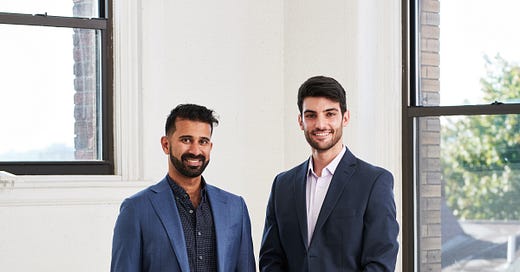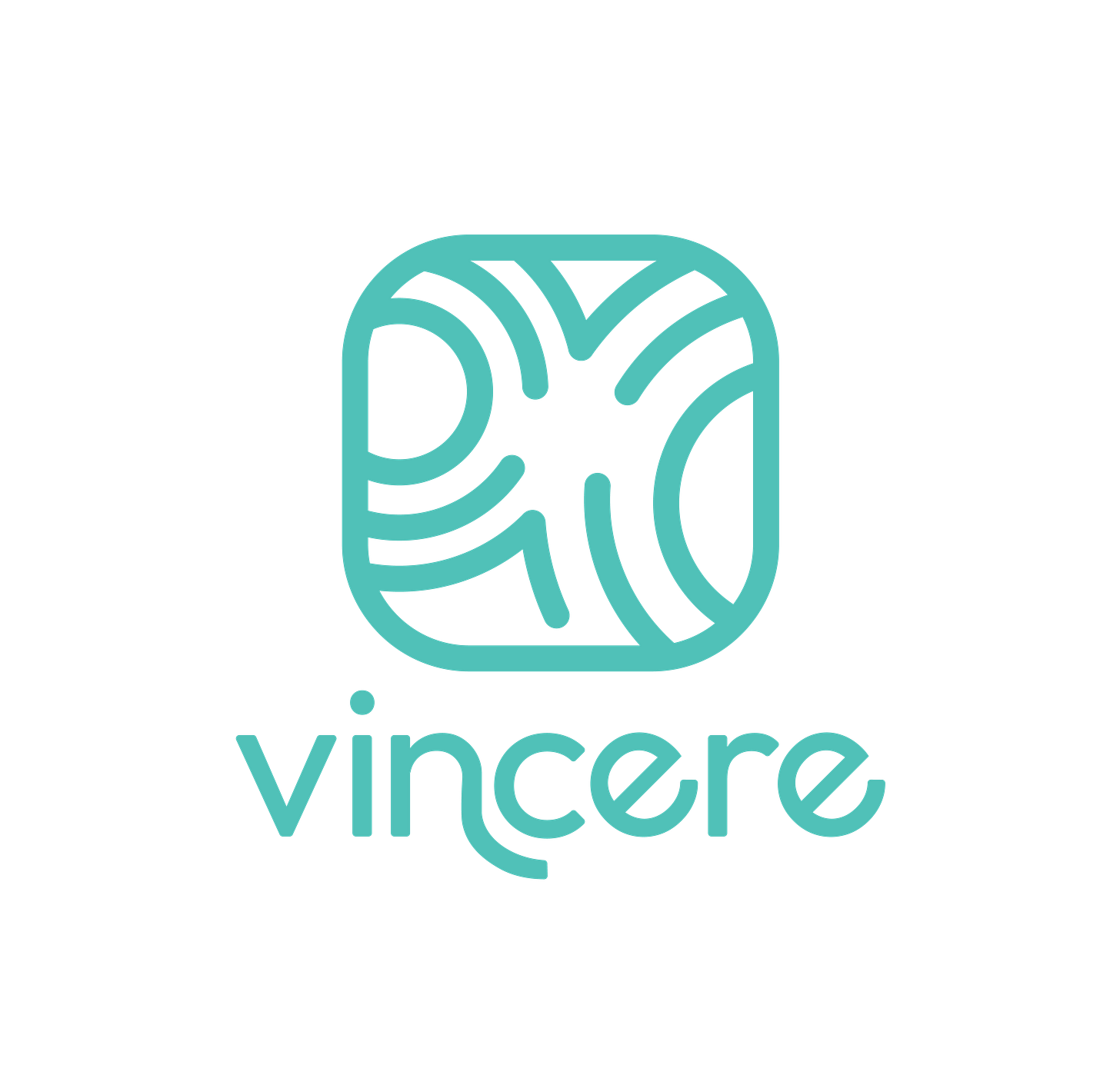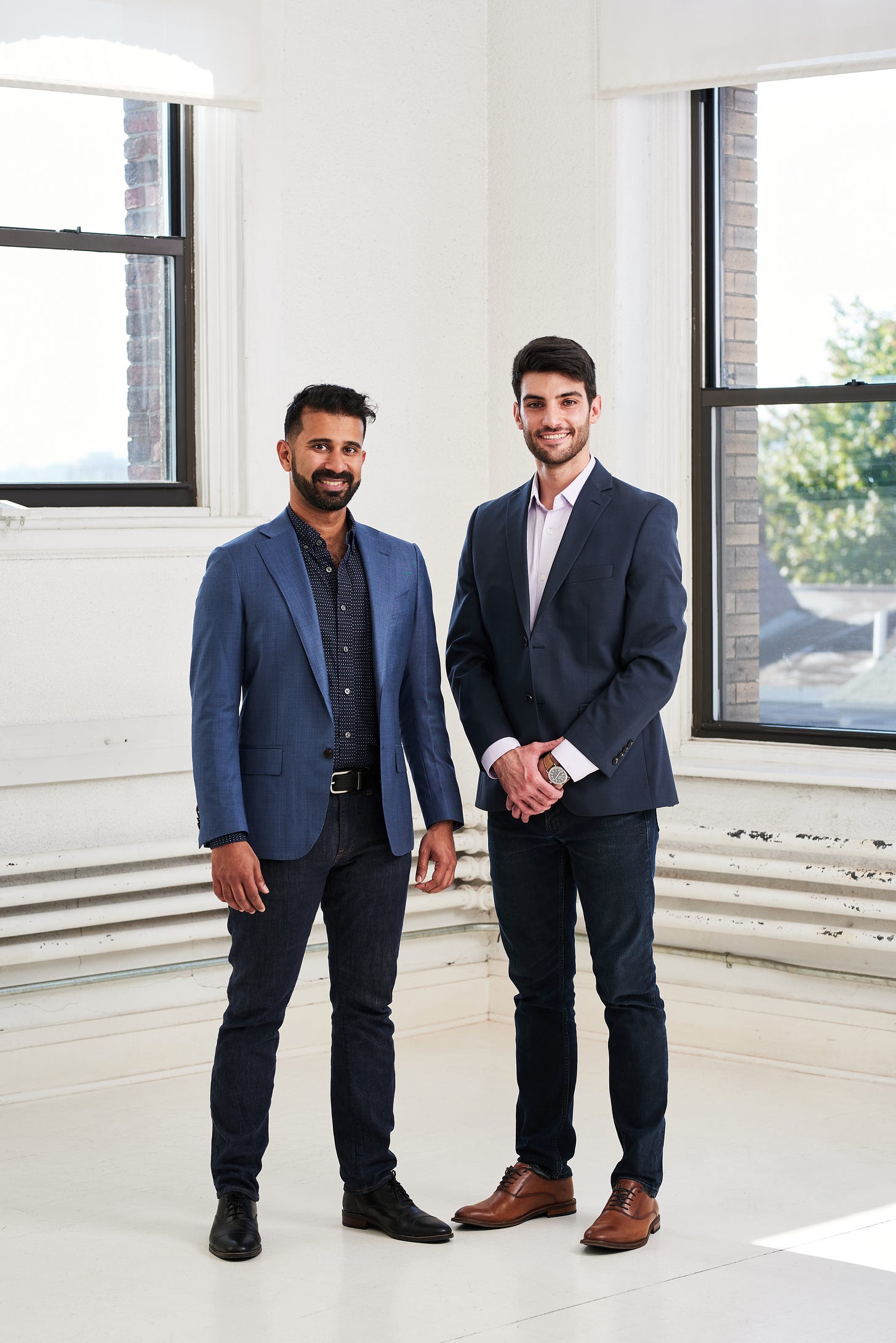Blog 4: Vincere Health
Technology, human interaction and financial incentives for a healthier lifestyle
Company: Vincere Health is pioneering behavior change incentivization to help people reclaim a smoke-free and vape-free lifestyle. The Vincere Health EARN program is a tech-enabled behavioral health platform that bundles a carbon (CO) monitoring breath pen, health coaching and financial incentives to improve outcomes for smoking cessation or reduction.
Location & Year Founded: Boston, 2019
Founders: Shalen De Silva, CEO (pictured left, interviewed) and Jacob (Jake) Keteyian, President
Funds Raised and VC Investors: $4.3 million from Alchemist Accelerator, Alumni Ventures, Am Fam Institute, Celtic House Asia Partners, Flare Capital Partners, Harvard Innovation Labs, HBS Alumni Angels, Purpose Built Ventures, SixThirty Ventures, Techstars, Victress Capital
Founder Backgrounds:
Shalen is a recovering banker who worked at Deloitte, BNP and SMBC, primarily in M&A and Leveraged Finance. During this time, he co-founded Global Clinic as a volunteer to deliver free cataract and cleft surgeries and primary eye and dental care around remote parts of Asia, which led him to quit banking and dedicate his career to healthcare. Shalen holds math, finance, and public health degrees from LSE, Cambridge, and Harvard.
Before his master’s degree at Harvard, Jake worked as a consultant in healthcare strategy and technology. He focused on innovative care delivery models and early value-based care initiatives for providers, payers, and state agencies. He is passionate about building teams and tech that enable thoughtful remote care models for vulnerable populations.
1. Where did the idea for Vincere Health originate?
My co-founder Jake Keteyian and I arrived at it from different places. I had been a banker and had also worked in Global Health in several emerging markets. I saw serious needs in countries where people had no access to basic medical care and expertise. Through this lens, I had always envisioned a system that empowers people with better choices. Financial incentives were an interesting way to nudge people into certain directions. I wanted to use instant rewards, health monitoring and behavioral sciences principles to encourage people to lead healthier lifestyles. Jake, coming at this from working in US healthcare strategy, Medicaid policy and payment innovation, recognized that digital health was not directed at certain vulnerable groups. Together, we saw the opportunity to apply both technology and academic research to a low-income population that was trapped in a void of health innovation.
2. What is the key problem that Vincere intends to solve?
Our most important observation since we began this endeavor is that human connection is the most important thing when working with patients to change behavior. The patient needs a qualified health professional to engage with them directly and this is hard to substitute with technology. Everything we are doing is to maximize opportunities for a human relationship. We are building digital experiences and behavioral nudges that enable and increase the likelihood that a patient can have a relationship with a clinician. This includes the population that normally can’t afford this. Remote monitoring helps track outcomes and drives efficiency and transparency. Vincere provides extrinsic motivation for the patient to engage, learn and discover their own intrinsic motivation.
3. Discuss the product itself and what differentiates it.
We have set ourselves apart by being able to find government and insurance industry sponsors, who see the highest financial pain from a population of their constituents and members who remain unhealthy. We have worked with state agencies, including Medicaid, and have earned their trust to prove that we can move the needle on outcomes for a low-income demographic that has traditionally been underserved by the health community. We solve everyday problems for everyday people that are often overlooked by traditional tech companies.
4. What are the company’s key accomplishments to date?
In under three years, we have contracted and been approved as a preferred vendor by large insurance companies and some of the most prestigious health systems across the country. Also, we have been able to drive meaningful outcomes and engagement, such as 80-90% compliance and a 52% smoking quit rate in our own comprehensive smoking cessation program. This for a population that earns less than $20,000 on average. We have also conducted a successful clinical study with Boston Medical Center to prove viability among their most challenging in-patient population. To date, we have touched the lives of over 1,600 patients.
5. What lies ahead in the plans for Vincere?
We are starting around single vertical of smoking cessation. However, we will ultimately focus on complex individual needs like low-income pregnant women and people with behavioral health co-morbidities. There are a lot of needs these populations might have where we believe we can affect change. We plan to address mental and behavioral health needs across the country as well.
6. What are the long-term strategic objectives?
When people think about the most impactful companies in America improving the health of Medicaid populations, we want to be right at the top of that list. We are bringing cutting edge technology to underserved populations through partnerships that we forge with various payers and providers. We won’t be able to do this alone.
Ron’s Take
Looking from the outside, it is all too easy to dismiss smoking and other addictions as “someone else’s problem.” Little consideration is given to the intrinsic reasons why certain populations, particularly those of a lower income demographic, pick up smoking and other unhealthy lifestyle behaviors in the first place. Smoking, like any other addiction, can be extremely difficult to break out of. If one does not have the right motivations, monitoring and human support to keep one on track, it becomes a vicious and virtually impossible cycle to break. Such addictions also have an impact beyond that one person. Families and friends pay a price, and society at-large often must make up the financial cost in the end, not to mention absorbing the additional strain on limited healthcare resources.
Vincere Health is taking an innovative approach to counseling people to implement the changes that they seek for better health and wellness. The company’s model relies on the payers, including government and private insurers, to accept the notion that an ounce of prevention is worth a pound of cure. Let’s hope that more such institutions see both the financial as well as moral value of partnering with companies like Vincere that are working to make sure that the individuals who are trying to quit smoking have a viable, proven path to doing so.
Disclaimer: Alumni Ventures invested in the seed round of Vincere Health in mid-2021.




